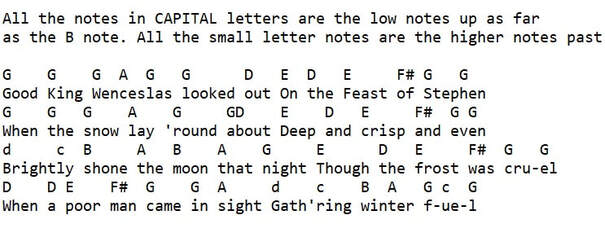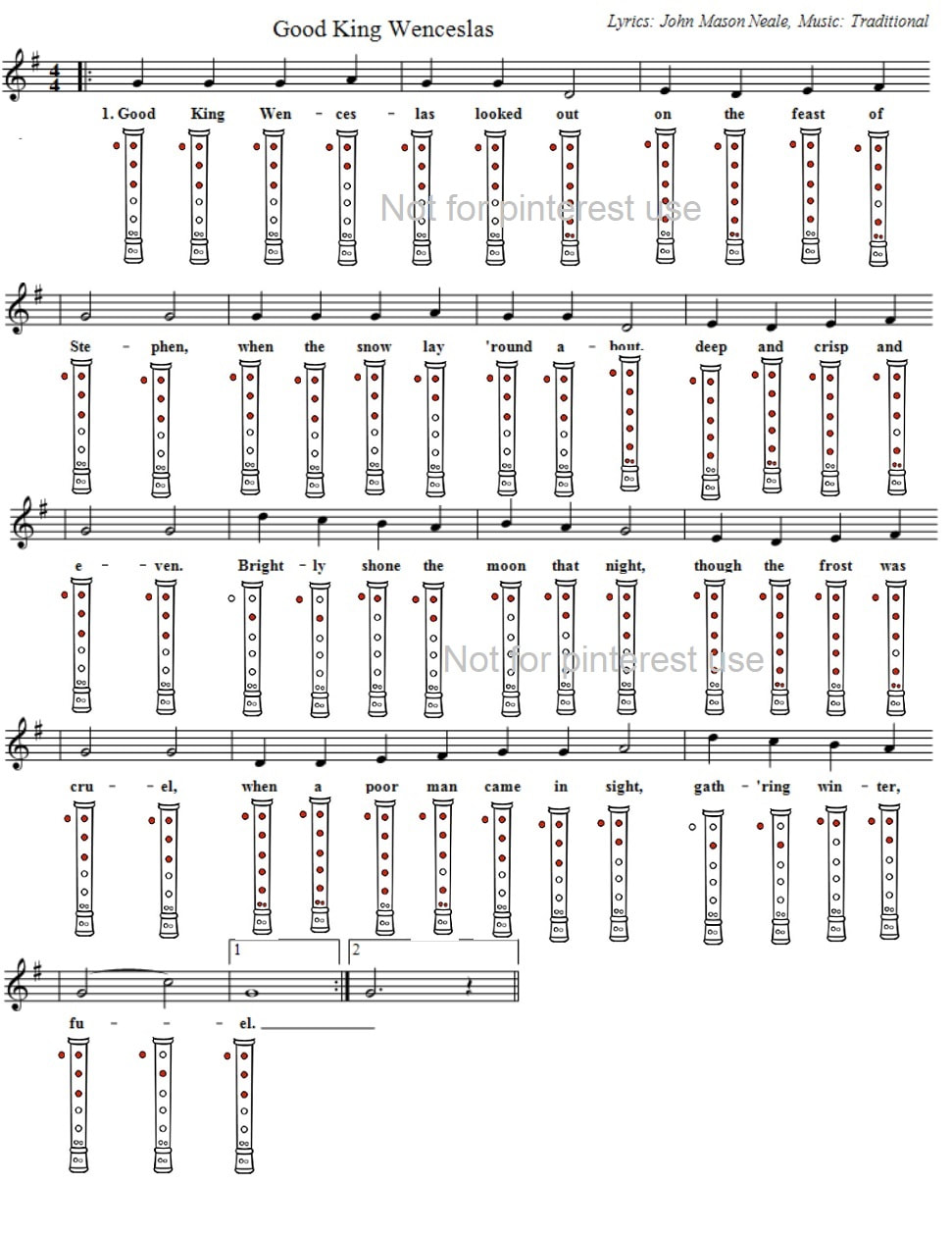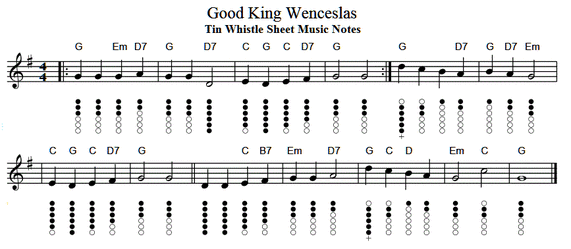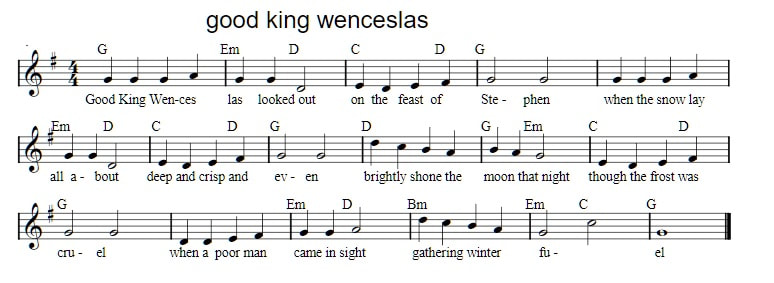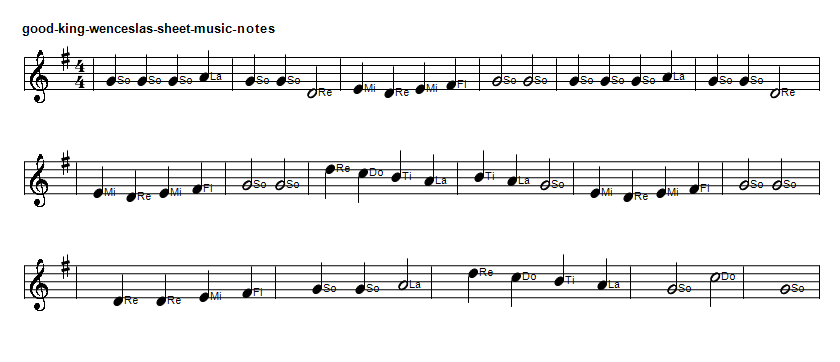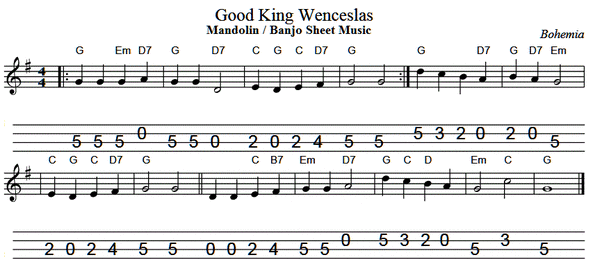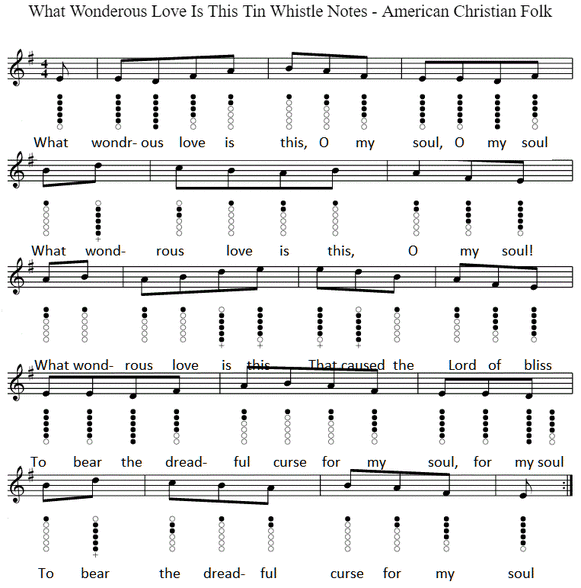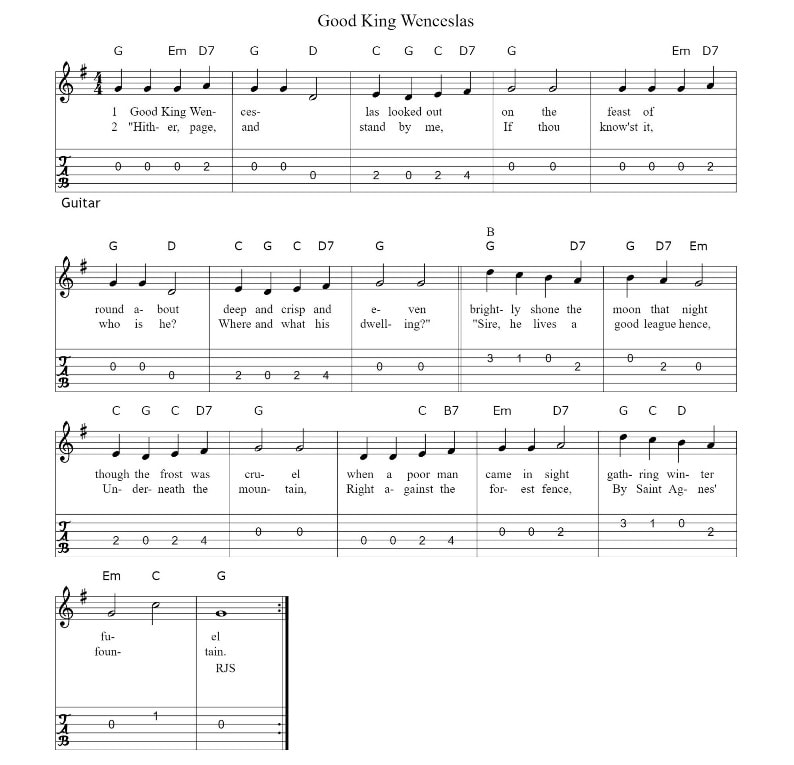Good king Wenceslas tin whistle sheet music
And banjo / mandolin tab, with the easy recorder finger notes chart, plus the easy piano keyboard / melodica letter notes for beginners. Written by English men John Mason Neale and Thomas Helmore, it's a tune that is part of the Christmas Tin Whistle Sheet Music . to the tune Tempus Adest Floridum which comes from Finland. Also included is another Christian hymn, What Wondrous Love Is This. Piano chords are in the second version in D. Good King Wenceslas fingerstyle guitar tab with chords.
The legend of Good King Wenceslas is one that has been passed down for centuries, with its origins rooted in a medieval Christmas carol. The story of this benevolent king has captured the hearts and minds of people all over the world, and continues to be celebrated and remembered to this day. But who was Good King Wenceslas and what was it about him that made him such a beloved figure? In this thesis, we will explore the life and legacy of Good King Wenceslas, and argue that he was not only a good king, but also a true embodiment of the Christian virtues of compassion, generosity, and selflessness.
To fully understand the significance of Good King Wenceslas, we must first delve into his background and the context in which he lived. Wenceslas, also known as Václav, was born in the early 10th century in the region of Bohemia, which is now part of the Czech Republic. He came from a royal family and was the son of Duke Vratislaus I. However, Wenceslas' father died when he was only 13 years old, leaving him as the ruler of Bohemia. Despite his young age, Wenceslas proved to be a wise and just ruler, known for his kindness, piety, and devotion to his people.
One of the most well-known stories about Wenceslas is the tale of his journey to aid a poor peasant on a cold winter's night, which is depicted in the Christmas carol. According to the legend, Wenceslas was looking out of his window on the feast of Stephen (December 26th) when he saw a poor man gathering firewood in the snow. Touched by the man's plight, Wenceslas decided to take action. He gathered food, wine, and wood from his own stores and, with the help of his page, set out to bring these provisions to the peasant's home. Despite the harsh weather, Wenceslas walked alongside his page, using his staff to light the way. Upon reaching the peasant's home, Wenceslas and his page were greeted with gratitude and warmth, and the king's act of kindness became a symbol of compassion and generosity that has been passed down through generations.
This legendary act of kindness is just one example of Wenceslas' character and his commitment to the well-being of his people. He was known to be a just and fair ruler, who treated his subjects with respect and compassion. He was also a devout Christian, who used his power and influence for the greater good. Wenceslas is said to have built many churches and monasteries, and was a patron of the arts and education. He encouraged the spread of Christianity in his kingdom and was known for his personal piety and devotion to the Church.
But Wenceslas' reign was not without challenges. His brother, Boleslaus, was envious of his popularity and power and sought to overthrow him. In 935, Boleslaus invited Wenceslas to a feast and murdered him in the presence of his wife and children. Despite his untimely death, Wenceslas' legacy continued to live on and he was eventually canonized as a saint by the Catholic Church.
So what is it about Good King Wenceslas that has made him such an enduring figure? One could argue that it is his embodiment of the Christian virtues that have resonated with people for centuries. Wenceslas' selfless act of helping a poor man in need is a reflection of the Christian teaching of loving one's neighbor as oneself. His commitment to the well-being of his people and his devotion to the Church are also in line with the teachings of Christianity. Wenceslas' story is a reminder that true greatness lies in acts of kindness and compassion towards others, rather than in power, wealth, or status.
In addition to his embodiment of Christian values, Wenceslas' story also holds symbolic significance. The fact that he is associated with Christmas, a holiday that celebrates the birth of Jesus Christ, connects him to the message of peace, love, and goodwill that is central to the Christian faith. His act of kindness towards the poor man can also be seen as a parallel to the story of the birth of Jesus, who was born in humble circumstances and preached compassion and love for all.
In conclusion, Good King Wenceslas was not only a good king, but also a true embodiment of the Christian virtues of compassion, generosity, and selflessness. His legendary act of helping a poor man on a cold winter's night has become a symbol of the true spirit of Christmas and has inspired countless people to follow in his footsteps. Wenceslas' story continues to be celebrated and remembered, and his legacy serves as a reminder of the power of kindness, love, and selflessness in making the world a better place.
To fully understand the significance of Good King Wenceslas, we must first delve into his background and the context in which he lived. Wenceslas, also known as Václav, was born in the early 10th century in the region of Bohemia, which is now part of the Czech Republic. He came from a royal family and was the son of Duke Vratislaus I. However, Wenceslas' father died when he was only 13 years old, leaving him as the ruler of Bohemia. Despite his young age, Wenceslas proved to be a wise and just ruler, known for his kindness, piety, and devotion to his people.
One of the most well-known stories about Wenceslas is the tale of his journey to aid a poor peasant on a cold winter's night, which is depicted in the Christmas carol. According to the legend, Wenceslas was looking out of his window on the feast of Stephen (December 26th) when he saw a poor man gathering firewood in the snow. Touched by the man's plight, Wenceslas decided to take action. He gathered food, wine, and wood from his own stores and, with the help of his page, set out to bring these provisions to the peasant's home. Despite the harsh weather, Wenceslas walked alongside his page, using his staff to light the way. Upon reaching the peasant's home, Wenceslas and his page were greeted with gratitude and warmth, and the king's act of kindness became a symbol of compassion and generosity that has been passed down through generations.
This legendary act of kindness is just one example of Wenceslas' character and his commitment to the well-being of his people. He was known to be a just and fair ruler, who treated his subjects with respect and compassion. He was also a devout Christian, who used his power and influence for the greater good. Wenceslas is said to have built many churches and monasteries, and was a patron of the arts and education. He encouraged the spread of Christianity in his kingdom and was known for his personal piety and devotion to the Church.
But Wenceslas' reign was not without challenges. His brother, Boleslaus, was envious of his popularity and power and sought to overthrow him. In 935, Boleslaus invited Wenceslas to a feast and murdered him in the presence of his wife and children. Despite his untimely death, Wenceslas' legacy continued to live on and he was eventually canonized as a saint by the Catholic Church.
So what is it about Good King Wenceslas that has made him such an enduring figure? One could argue that it is his embodiment of the Christian virtues that have resonated with people for centuries. Wenceslas' selfless act of helping a poor man in need is a reflection of the Christian teaching of loving one's neighbor as oneself. His commitment to the well-being of his people and his devotion to the Church are also in line with the teachings of Christianity. Wenceslas' story is a reminder that true greatness lies in acts of kindness and compassion towards others, rather than in power, wealth, or status.
In addition to his embodiment of Christian values, Wenceslas' story also holds symbolic significance. The fact that he is associated with Christmas, a holiday that celebrates the birth of Jesus Christ, connects him to the message of peace, love, and goodwill that is central to the Christian faith. His act of kindness towards the poor man can also be seen as a parallel to the story of the birth of Jesus, who was born in humble circumstances and preached compassion and love for all.
In conclusion, Good King Wenceslas was not only a good king, but also a true embodiment of the Christian virtues of compassion, generosity, and selflessness. His legendary act of helping a poor man on a cold winter's night has become a symbol of the true spirit of Christmas and has inspired countless people to follow in his footsteps. Wenceslas' story continues to be celebrated and remembered, and his legacy serves as a reminder of the power of kindness, love, and selflessness in making the world a better place.
Good king Wenceslas letter notes for beginners of piano keyboard / melodica, tin whistle, flute or recorder. These notes below match what's in the sheet music above. If your playing it on your piano then remember that there's just one black key to play and that's the F sharp [ # ]
Below are the Good King Wenceslas piano keys to play
Included below are the basic recorder finger notes
Below is the standard sheet music notes with the piano chords.
Solfege do re mi notes for good king wenceslas
Below is the list of sheet music and tin whistle songs that are in my ebooks. This is the largest collection of tin whistle songs ever put together.[over 800 songs ] Including folk, pop and trad tunes plus German And French songs along with Christmas Carols.
All of the sheet music tabs have been made as easy to play as was possible.
The price of the ebooks is €7.50
All of the sheet music tabs have been made as easy to play as was possible.
The price of the ebooks is €7.50

